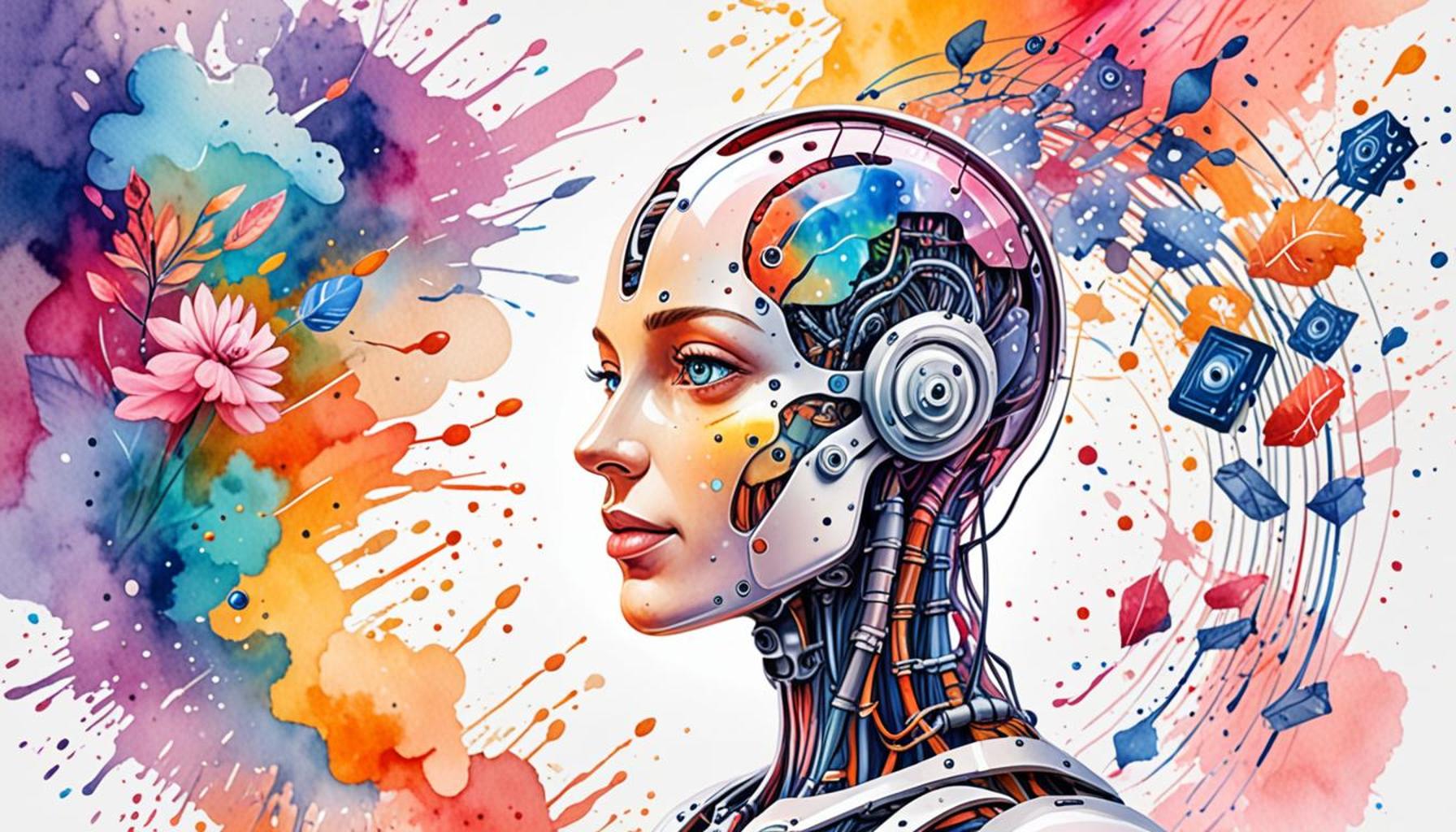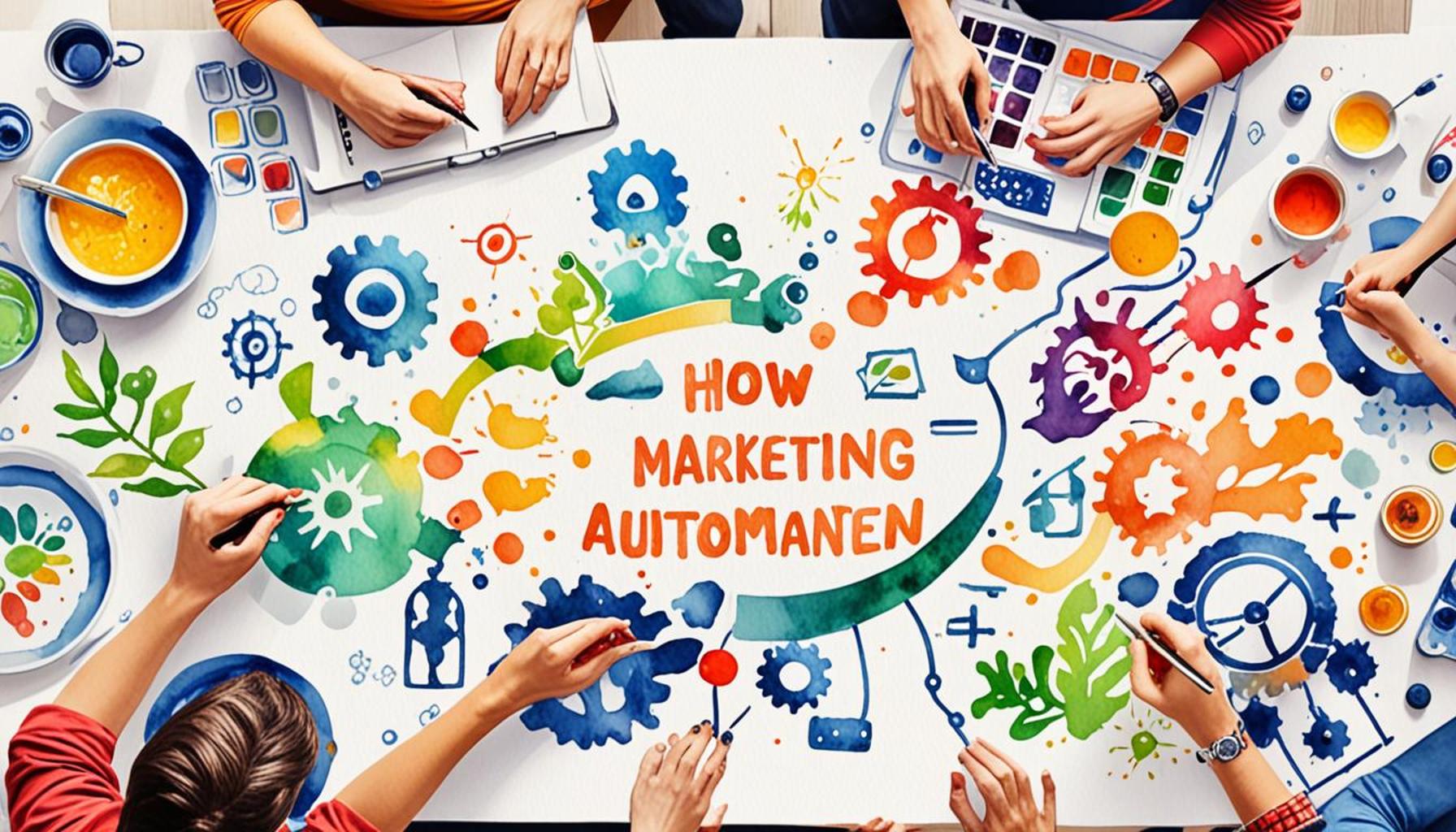The Role of Artificial Intelligence in Marketing Automation Optimization

Understanding the Transformative Power of AI in Marketing
As the dynamics of the marketplace evolve, organizations are increasingly turning to artificial intelligence (AI) as a crucial asset in their marketing endeavors. The sheer volume of data generated today creates vast opportunities for leveraging AI to glean insights that were previously unattainable. This technology does not merely enhance marketing strategies; it fundamentally reshapes the relationship between businesses and consumers.
One of the standout features of AI in this domain is predictive analytics. By mining extensive databases filled with customer interactions, purchasing patterns, and outside influences, AI can forecast not only what a customer might buy next, but also the timing of that purchase. For example, a retail clothing brand can analyze past purchasing data to determine when consumers are most likely to buy seasonal items, enabling the launch of targeted promotions right when they are most effective.
Advanced Segmentation for Tailored Campaigns
Segmentation plays a vital role in today’s marketing landscape. AI tools can dissect audiences into nuanced segments based on behaviors, demographics, and preferences, allowing for hyper-personalized marketing efforts. For instance, a beverage company can identify segments that prefer health-focused drinks versus those that prioritize convenience. Armed with this knowledge, they can craft distinct messages—like energy-boosting content for athletes versus quick-refresh ads for busy professionals—ensuring marketing communication resonates on a personal level.
Automation of Content Creation
Another striking implementation of AI is in content generation. AI-driven platforms can create tailored content that aligns with individual tastes and interests, ensuring that messages sent to customers are both relevant and engaging. A digital marketing agency might employ AI tools to draft newsletters or social media posts that reflect current trends or consumer sentiments, optimizing both engagement rates and brand loyalty.
Moreover, AI’s ability to streamline resource allocation is becoming unparalleled. By analyzing performance metrics in real-time, businesses can adjust budgets and marketing strategies dynamically. Companies in the United States have started to leverage these insights, leading to improved decision-making processes and a boost in return on investment (ROI). For example, a tech startup may utilize AI to determine which advertising channels yield the highest engagement rates and reallocate funds accordingly, maximizing impact without overspending.
Conclusion
In an era where consumer choice is abundant, the role of AI in marketing automation cannot be understated. It not only facilitates automated routines but also shapes a landscape where businesses can thrive by understanding and responding to consumer needs with unprecedented precision. As we progress deeper into this digital age, the organizations that harness AI effectively will likely be the ones that lead the market, setting standards for engagement, efficiency, and ultimately, consumer satisfaction.
YOU MAY ALSO LIKE: Read read another article
Revolutionizing Marketing Strategies with AI Insights
The integration of artificial intelligence (AI) into marketing automation optimization has ushered in a new era for businesses looking to enhance their engagement strategies effectively. One of the most significant impacts of AI is its ability to provide real-time insights that inform marketing decisions and strategies. This empowers companies to react promptly to market changes and consumer behaviors, thereby refining their overall marketing efforts.
One key area where AI excels is in enhancing customer journey mapping. By analyzing vast amounts of data from various touchpoints, AI can create comprehensive profiles of customer interactions, highlighting trends and pain points throughout the buying process. For example, a U.S.-based e-commerce company might utilize AI tools to track customer pathways on their website, identifying where potential buyers drop off in the journey. This information enables the brand to create targeted interventions, such as tailored emails or retargeted ads, steering consumers back toward a potential purchase.
Enhanced Customer Engagement through AI-Driven Personalization
AI’s ability to deliver personalized experiences significantly enhances customer engagement. Personalization is no longer a luxury; it is rapidly becoming an expectation. By processing consumer data, AI can help businesses provide unique experiences that cater to individual preferences. The following are some of the ways AI contributes to unparalleled personalization:
- Dynamic Content Recommendations: AI algorithms analyze user behaviors to suggest products or content that align with their interests, optimizing user journeys on websites or apps.
- Customized Email Campaigns: AI can segment email lists and automate personalized messaging based on user activity, leading to higher open and conversion rates.
- Real-Time Interaction: Chatbots powered by AI provide instant responses to customer inquiries, enhancing engagement while freeing up human resources for more complex queries.
With these tools at their disposal, businesses can cultivate a culture of meaningful engagement with their audiences. For instance, streaming services like Netflix employ AI to analyze viewing habits, allowing them to suggest relevant content that keeps users hooked. This not only increases user satisfaction but also nurtures long-term loyalty.
Optimizing Campaign Performance with Data-Driven Strategies
Another vital advantage of leveraging AI in marketing automation is the ability to optimize campaign performance continually. AI systems can evaluate numerous metrics to determine the effectiveness of various marketing tactics. This includes tracking engagement rates, analyzing conversion funnels, and measuring return on ad spend. As businesses gather this data, AI can suggest adjustments to enhance campaign effectiveness.
In practice, a local restaurant chain might employ AI to assess the success of a new promotional campaign. By analyzing customer feedback, social media interactions, and sales data, the AI system could recommend tweaking certain elements—such as promotional messaging or target demographics—to improve future campaigns. With these insights, businesses can enhance their marketing agility, adapting strategies to align with evolving consumer preferences and behaviors.
The integration of AI into marketing automation is not simply advantageous; it is imperative for businesses wishing to stay competitive in today’s fast-paced market. By leveraging AI’s capabilities in customer insights, personalization, and campaign optimization, brands can ensure that they meet—and exceed—customer expectations.
As the digital landscape continues to evolve, the integration of Artificial Intelligence (AI) in Marketing Automation Optimization has emerged as a transformative force. This revolutionary approach not only streamlines marketing processes but also enhances the effectiveness of campaigns by leveraging data-driven insights. One of the key advantages of AI in marketing is its ability to analyze vast amounts of customer data in real time. By employing advanced algorithms, AI can detect patterns and trends that human marketers may overlook. This capability allows businesses to tailor their marketing strategies more effectively, thus improving customer engagement and satisfaction.
Another significant benefit is the automation of repetitive tasks. AI-powered tools can handle activities such as email marketing, social media posting, and customer segmentation with minimal human intervention. This not only saves time but also reduces the likelihood of errors. Marketing teams can focus on more strategic initiatives, knowing that the routine aspects of their campaigns are being managed efficiently. Moreover, the real-time feedback provided by AI systems allows for quick adjustments to marketing strategies, ensuring that campaigns remain relevant and effective.
Additionally, AI-driven analytics provide insights into customer behavior, enabling marketers to create personalized experiences. Personalized marketing is becoming increasingly important in capturing the attention of consumers who are overwhelmed with generalized content. By understanding individual preferences, marketers can deliver targeted messages that resonate with specific audiences, thereby increasing conversion rates.
In summary, the integration of AI into marketing automation not only optimizes operational efficiency but also enhances personalization and engagement strategies. The future of marketing lies in harnessing these AI capabilities to create more tailored and effective campaigns.
| AI Advantage | Description |
|---|---|
| Data Analysis | Real-time insights into consumer behavior. |
| Task Automation | Streamlined processes for routine marketing tasks. |
| Personalization | Tailored marketing strategies to enhance consumer engagement. |
CHECK OUT: Click here to explore more
Transforming Marketing Strategies with Predictive Analytics
One of the most cutting-edge applications of artificial intelligence in marketing automation is the use of predictive analytics. This technique enables businesses to anticipate future consumer behavior based on historical data, allowing marketers to be proactive rather than reactive. For instance, a fashion retailer can analyze past purchasing patterns to predict what items will be in demand during upcoming seasons. By doing so, they can adjust inventory levels and marketing strategies to capitalize on anticipated trends, thus maximizing revenue opportunities.
Predictive models can be remarkably precise. Research shows that companies leveraging AI-driven predictive analytics can increase their marketing ROI by up to 20%. This is particularly important in today’s data-rich environment, where businesses that can quickly derive actionable insights have a significant competitive edge. In practice, a mortgage lender might use predictive analytics to identify potential clients who are on the verge of refinancing before they even consider reaching out. By targeting these individuals with tailored offers through email or advertisements, they can significantly boost conversion rates.
Automation Meets AI for Streamlined Workflows
The fusion of AI and marketing automation not only enhances strategy but also streamlines workflows, making marketing teams more efficient. AI-powered automation tools are capable of executing repetitive tasks such as scheduling social media posts, tracking customer interactions, and generating reports with minimal human intervention. This allows marketing professionals to focus on higher-level strategic initiatives rather than getting bogged down by routine tasks.
A great example of this is social media management software that automatically analyzes the best times to post content for maximum engagement based on audience data. These tools can automatically adjust posting schedules to align with peak user activity, ensuring brands reach the highest number of users possible at the right time. Even a small business can leverage such tools to maintain an active online presence without spending excessive hours on manual posting.
Enhancing Brand Loyalty with AI-Driven Insights
AI also plays a crucial role in enhancing brand loyalty through enhanced customer satisfaction. By utilizing sentiment analysis, companies can monitor customer feedback across various platforms such as social media and review sites. This provides invaluable insights into how customers feel about a brand’s products and services. For instance, if a beverage company notices consistent negative feedback regarding a specific drink, they can quickly address the issue—whether it’s a formulation problem or a packaging flaw—before further harming their brand image.
Moreover, AI can tailor follow-up communication based on sentiment analysis. If a customer had a positive interaction, marketers can send thank-you emails or discount offers to encourage repeat purchases. In contrast, if a customer expresses dissatisfaction, a prompt response can help mitigate negative impressions and potentially salvage the relationship. This proactive approach fosters a sense of care and attentiveness among consumers, essential for long-term loyalty.
In summary, as businesses increasingly adopt AI technologies, the marketing landscape will continue to evolve rapidly. By harnessing predictive analytics, refining internal workflows through automation, and enhancing customer relations with sentiment analysis, companies can optimize their marketing efforts and ensure they remain relevant in an ever-changing marketplace.
YOU MAY ALSO LIKE: Read read another article
Conclusion: The Future of Marketing is Intelligent
As we explore the multifaceted roles of artificial intelligence in marketing automation optimization, it becomes evident that we stand at the precipice of a transformative era in marketing. The integration of AI technologies continues to redefine how businesses engage with consumers, enabling them to craft personalized experiences that are not only relevant but also timely. From employing predictive analytics to anticipate customer needs to leveraging automation to enhance operational efficiency, companies are discovering value in every aspect of their marketing strategies.
The implications of these advancements are profound. Businesses that effectively utilize AI-driven insights can enhance their decision-making processes, leading to improved customer experiences and stronger brand loyalty. As noted earlier, organizations that adopt AI technologies can see marketing ROI improvements ranging from 20% upward, a metric that shouldn’t be overlooked in an increasingly competitive landscape.
Moreover, by harnessing the power of real-time data analysis and sentiment monitoring, marketers are not merely reacting to trends but are proactively creating solutions tailored to their audiences’ ever-evolving preferences. This genuine approach can foster deeper connections with consumers, solidifying their loyalty in a marketplace where choices are abundant and competition is fierce.
Looking ahead, the question becomes not whether to implement AI in marketing automation, but how to strategically integrate these technologies into existing frameworks. Organizations willing to invest in AI innovations will not only streamline their operations but will also be better positioned to navigate future challenges and capitalize on emerging opportunities. The journey of AI in marketing is just beginning—are you ready to explore its full potential?


